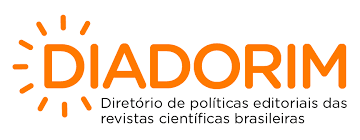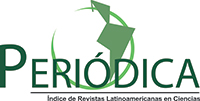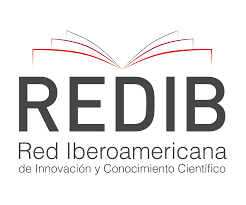FACTORS ASSOCIATED WITH BREASTFEEDING SELF-EFFICACY IN THE IMMEDIATE PUERPERIUM IN A PUBLIC MATERNITY HOSPITAL
DOI:
https://doi.org/10.1590/ce.v28i0.88970Palavras-chave:
Breast Feeding, Self-Efficacy, Infant Nutrition, Weaning, Postpartum Period.Resumo
Objective: to verify the association between sociodemographic variables, obstetric history, current pregnancy, and puerperium with breastfeeding self-efficacy.
Method: cross-sectional study conducted in southwestern Maranhão, Brazil, between October 2020 and July 2021 with the participation of 240 postpartum women, using the Breastfeeding Self-Efficacy Scale - Short Form. Descriptive analysis, possible associations, simple and multiple logistic regression models were performed.
Results: 83.3% had high breastfeeding self-efficacy, 46.7% were between 26 and 35 years old, 81.2% were married or in a stable union, 94.2% breastfed in the first hour of life, 37.9% received orientation on breastfeeding in the Primary Health Care Unit, and 84.2% offered only breast milk to the newborn in the maternity hospital. These factors were associated with high breastfeeding self-efficacy (p<0.05).
Conclusion: The research contributed to guide health professionals to provide superior quality care to pregnant and postpartum women and lactating mothers, aiming to increase breastfeeding self-efficacy, identifying, among these women, those who need more support.
Downloads
Publicado
Como Citar
Edição
Seção
Licença
A Cogitare Enfermagem se reserva no direito de efetuar, no artigo publicado, alterações de ordem normativa, ortográfica e gramatical, com vistas a manter o padrão culto da língua, respeitando, porém, o estilo dos autores.
O estudo publicado é de inteira responsabilidade do(s) autor(es), cabendo exclusivamente à Cogitare Enfermagem a avaliação do manuscrito, na qualidade de veículo de publicação científica. Não será permitido acréscimo ou mudança de autoria durante a etapa de avaliação ou após aceite do texto submetido.
A Cogitare Enfermagem não se responsabiliza por eventuais violações à Lei nº 9.610/1998, Lei Brasileira de Direitos Autorais.
A Cogitare Enfermagem permite que o autor detenha o copyright dos artigos aceitos para publicação, sem restrições.
Propriedade Intelectual e Termos de uso
Responsabilidade do Autor:
Quanto a autoria, os autores necessitam especificar, na página de identificação, qual o tipo de contribuição individual que exerceu durante a elaboração do artigo. Conforme os critérios estabelecidos pelo ICMJE disponível em: http://www.icmje.org/recommendations/browse/roles-and-responsibilities/defining-the-role-of-authors-and-contributors.html .
É importante destacar que são considerados quatro critérios mínimos de autoria, e todos aqueles designados como autores devem atendê-los, são eles:
- Contribuições substanciais para a concepção ou desenho do estudo; ou a aquisição, análise ou interpretação de dados do estudo;
- Elaboração e revisão crítica do conteúdo intelectual do estudo;
- Aprovação da versão final do estudo a ser publicado;
- Responsável por todos os aspectos do estudo, assegurando as questões de precisão ou integridade de qualquer parte do estudo.
Não será permitido acréscimo ou mudança de autoria durante a etapa de avaliação ou após aceite do texto submetido.
Os artigos publicados estarão licenciados sob a licença Creative Commons CC BY 4.0 Creative Commons — Attribution 4.0 International — CC BY 4.0 – A atribuição adotada pela Cogitare Enfermagem é permitida:
- Compartilhar – copiar e redistribuir o material em qualquer mídia ou formato;
- Adaptar – remixar, transformar e construir sobre o material para qualquer finalidade, mesmo comercialmente;
- Atribuição — Você deve atribuir o devido crédito, fornecer um link para a licença, e indicar se foram feitas alterações. Você pode fazê-lo de qualquer forma razoável, mas não de uma forma que sugira que o licenciante o apoia ou aprova o seu uso;
- Sem restrições adicionais — Você não pode aplicar termos jurídicos ou medidas de caráter tecnológico que restrinjam legalmente outros de fazerem algo que a licença permita.
Responsabilidade do Site:
A Cogitare Enfermagem encoraja os Autores a arquivar seus manuscritos aceitos, publicando-os em blogs pessoais, repositórios institucionais e mídias sociais acadêmicas, bem como postando-os em suas mídias sociais pessoais, desde que seja incluída a citação completa à versão do website da revista.”






















